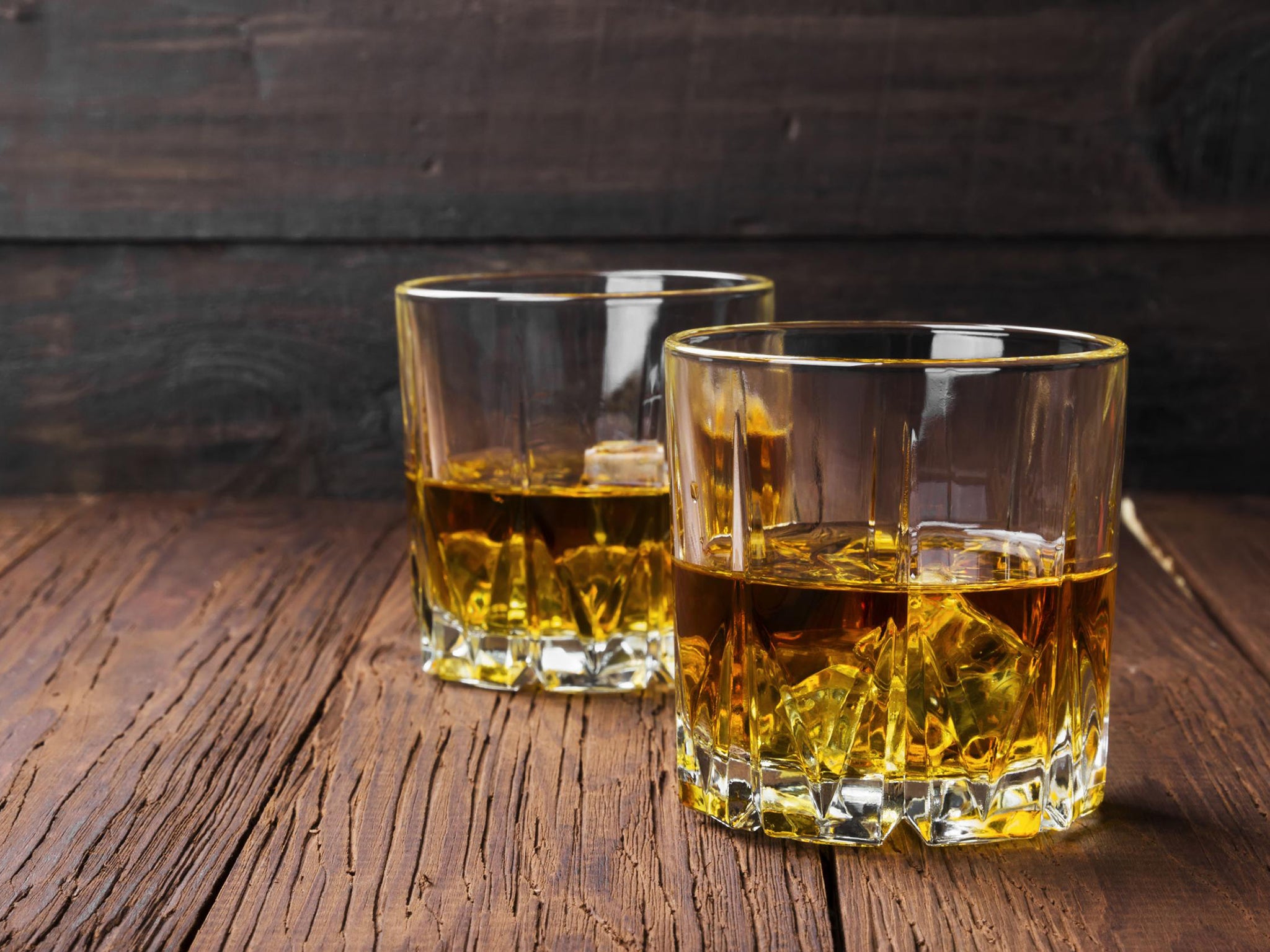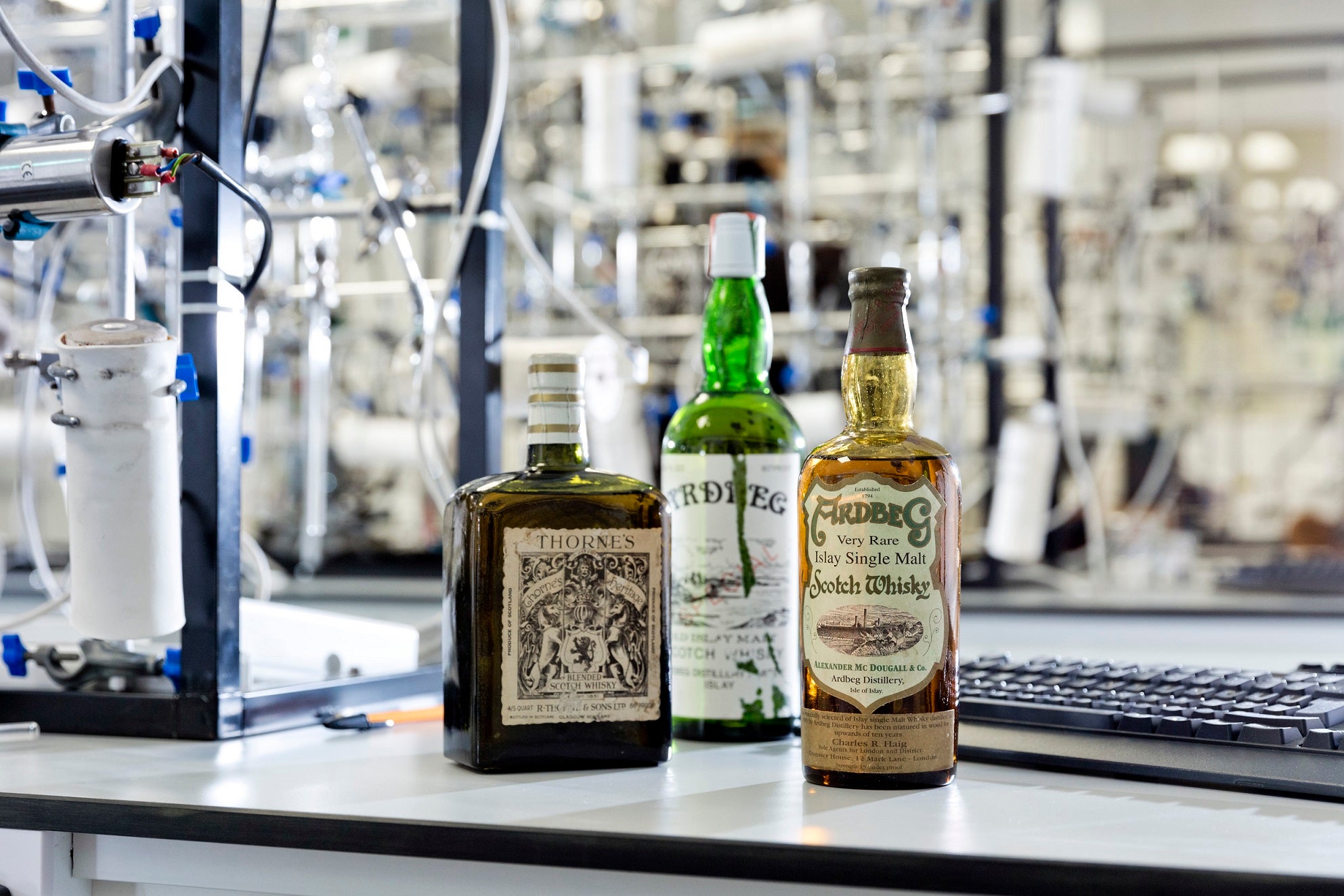More than a third of vintage Scotch whiskies found to be fake
The whiskies found to be fake could have been valued at around £635,000 if proven real

Your support helps us to tell the story
From reproductive rights to climate change to Big Tech, The Independent is on the ground when the story is developing. Whether it's investigating the financials of Elon Musk's pro-Trump PAC or producing our latest documentary, 'The A Word', which shines a light on the American women fighting for reproductive rights, we know how important it is to parse out the facts from the messaging.
At such a critical moment in US history, we need reporters on the ground. Your donation allows us to keep sending journalists to speak to both sides of the story.
The Independent is trusted by Americans across the entire political spectrum. And unlike many other quality news outlets, we choose not to lock Americans out of our reporting and analysis with paywalls. We believe quality journalism should be available to everyone, paid for by those who can afford it.
Your support makes all the difference.More than a third of vintage Scotch whiskies tested at a specialist laboratory centre have been found to be “modern fakes”, according to a new investigation.
Tests undertaken at the Scottish Universities Environmental Research Centre (Suerc) in East Kilbride confirmed that 21 out of 55 bottles of rare Scotch whisky were either fake or not distilled in the year declared.
The fake bottles could have been worth around £635,000 if proven real, claim specialists.
All malt whisky samples which had been stated as dating from around 1900 or earlier were also found to be fake.
Following growing concern surrounding the production of fake whisky in the secondary market, geochemistry experts at Suerc teamed up with Dunfermline-based Rare Whisky 101 (RW101), one of the world’s leading specialists in rare whisky, to carry out the testing.
The scientists randomly sampled, forensically tested and analysed a range of different whiskies acquired from auctions, private collections and retailers.
To find out the ages of the whiskies in each bottle, Suerc measured the residual concentrations of a radioactive isotope of carbon which provides each whisky with its own radioactive date signature.
This process helps them to establish the distillation years of whiskies to within a two to three year period post the 1950s.
Rare whiskies found to be among the fakes include a bottle of Ardbeg 1885 acquired from a private owner and a bottle of rare Thorne’s Heritage early-20th century blended whisky purchased from an auctioneer.
Professor Gordon Cook, head of the Suerc Radiocarbon Laboratory, said: “It is disappointing to see the large percentage of vintage whiskies that turn out to be fake.”

As a result of the findings, RW101 estimated that approximately £41m worth of rare whisky currently in the secondary market, and in existing collections, is fake.
That number is more than the entire UK auction market, which the company predicted to exceed £36m by the end of 2018.
David Robertson, co-founder of RW101, said that every purported rare whisky bottle should be “assumed fake until proven genuine, certainly if the bottle claims to be a single malt Scotch whisky”.
“This problem will only grow as prices for rare bottles continue to increase,” he added.
His co-founder, Andy Simpson, said that while the “vast majority” of whisky vendors aren’t knowingly selling fake whisky, he believes the “exploding demand for rare whisky is inevitably attracting rogue elements to the sector”.
Simpson urged buyers, auction houses, retailers and brand owners to refrain from busying rare whiskies “unless it has a professional certificate of of distillation year/vintage by a carbon dating laboratory”.
Last year, RW101 and the University of Oxford discovered a £7,600 dram of vintage Scotch whisky bought in a Swiss hotel to be a fake.
Join our commenting forum
Join thought-provoking conversations, follow other Independent readers and see their replies
Comments